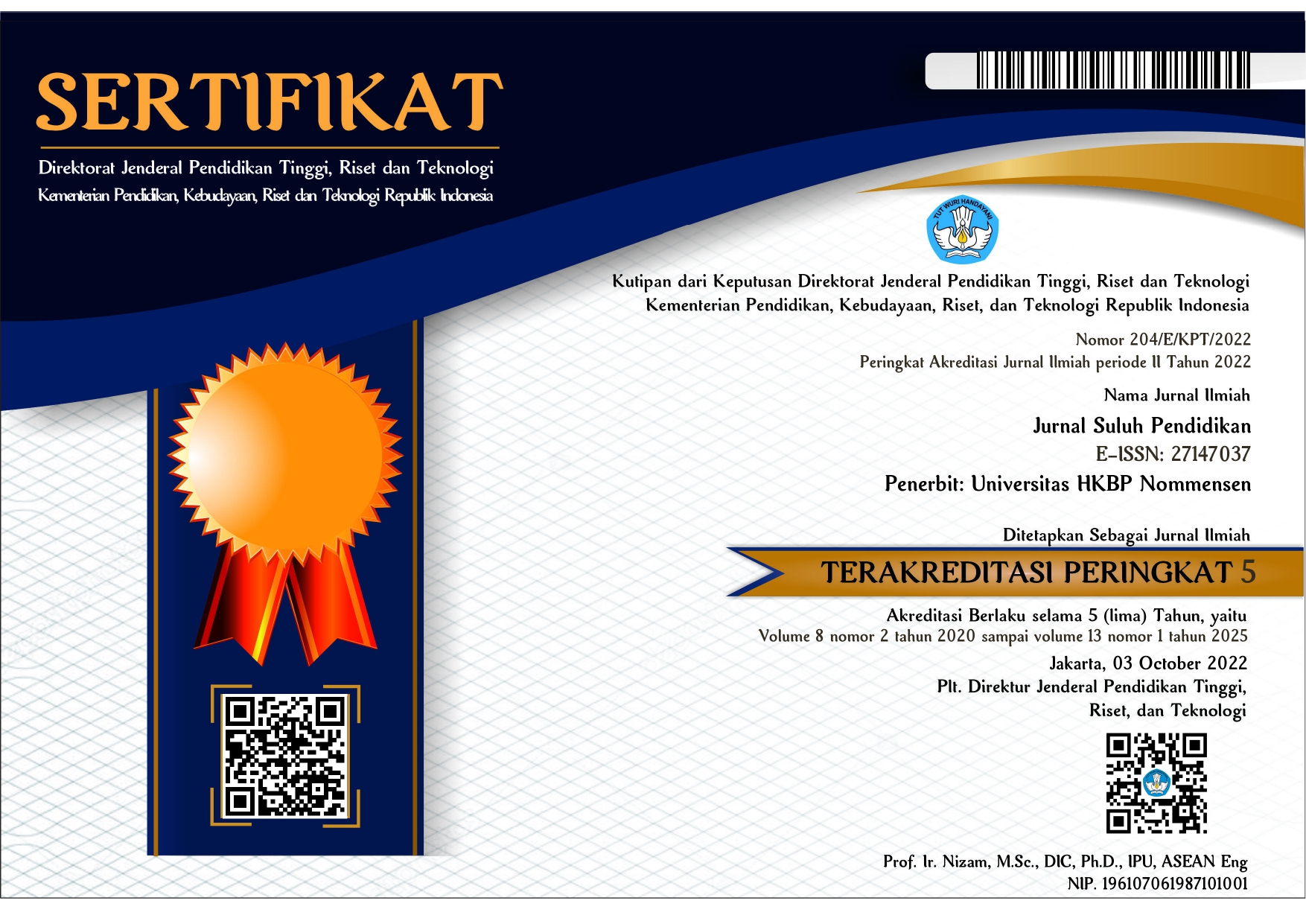PENGARUH MEDIA BIG BOOK TERHADAP PERKEMBANGAN KOSAKATA BAHASA INGGRIS SISWA KELAS I SD NEGERI 040443 KABANJAHE
Abstract
The study aims to determine the development of English vocabulary of children aged 6-7 years through Big Book media on students in class I of SD Negeri 040443 Kabanjahe. This study uses an experimental research method because it will look for the effect of certain treatments. The type of research is the Quasi Experiment. The quasi-experimental research design used in this research is the Nonequivalent control group design. In this design there are two groups used, namely the experimental group and the control group. The population used in this research was all class I
138
students at SD Negeri 040443 Kabanjahe, totaling 40 children, with the sample being classes B1 and B2 determined by purposive sampling. Data collection techniques by conducting observations, questions, and answers (interviews), and taking physical evidence such as photographs (documents), and RPPH. Before being used, the instrument was tested for validity and reliability. Validity testing with the Corrected Item Total Correlation technique and reliability testing with Cronbach Alpha's technique. All calculations use the help of the SPSS program version 18.0 for windows. Furthermore, to meet the requirements of the hypothesis test, normality calculations were carried out with the Kolmogorov-Smirnov test and homogeneity calculations with the Lavene Statistic test on both samples (class B1 and class B2). Data analysis techniques were carried out with descriptive statistics and continued with inferential statistics using the t-test or t-test, with the formula paired sample t-test and a significance value of α = 0.05 (5%). Based on the results of the study, it was concluded that the use of Big Book media in the English learning process on vocabulary proved to have a significant effect on the development of children's English vocabulary in the experimental group in class B1. The level of vocabulary development of children who were given treatment was higher compared to the group of children who were not given treatment, in the experimental group and the control group there was a "quite significant" difference. Based on calculations carried out with the help of the SPSS version 18.0 for Windows program, it is known that the value of t in the SPSS output after the paired samples T-test analysis was -5.315. Where in the t value there is a minus sign (-) which is a sign that there is a difference between the two groups. Therefore, the presence of this minus sign indicates a signal that there is a difference between the two groups (experimental and control).

This work is licensed under a Creative Commons Attribution 4.0 International License.
Hak Cipta:
Penulis yang mempublikasikan manuskripnya di jurnal ini menyetujui ketentuan berikut:
- Hak cipta pada setiap artikel adalah milik penulis.
- Penulis mengakui bahwa Jurnal Suluh Pendidikan (JSP) berhak menjadi yang pertama menerbitkan dengan Creative Commons Attribution 4.0 International License (Attribution 4.0 International (CC BY 4.0)).
- Penulis dapat mengirimkan artikel secara terpisah, mengatur distribusi non-eksklusif manuskrip yang telah diterbitkan dalam jurnal ini ke versi lain (misalnya, dikirim ke repositori institusi penulis, publikasi ke dalam buku, dll.), dengan mengakui bahwa manuskrip telah diterbitkan pertama kali di Jurnal Suluh Pendidikan.




